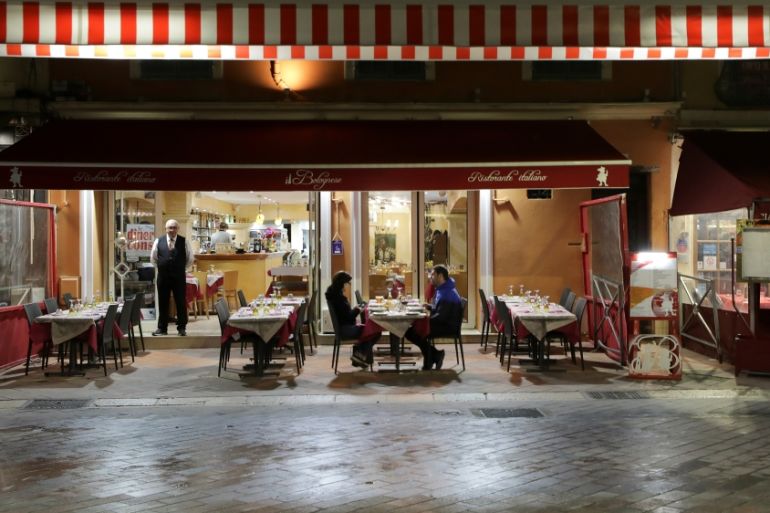France’s business mood sours as lockdown slows economy
An official survey found that business confidence in France plunged by a record level in February.

French economic activity and household spending are running at about 65 percent of normal levels due to the coronavirus outbreak, the INSEE official statistics agency said on Thursday.
INSEE gave the first picture of the impact of a nationwide lockdown in France as it published its monthly business confidence index, which saw its biggest single drop since records began in 1980.
Keep reading
list of 3 itemsAre ‘coronabonds’ in the cards to help Europe fight pandemic?
France announces $50bn measures to help virus-hit firms
The index fell to 95 points from 105 points in February, with even steeper declines seen in the services and retail sectors, INSEE said.
The French government has prepared a 45 billion euro ($49.1bn) package of crisis measures – totalling 2 percent of the country’s gross domestic product – that is made up mainly of deferred taxes and payroll charges for companies, and payments to companies who put workers on reduced schedules.
Additionally, the government is guaranteeing up to 300 billion euros – 15 percent of GDP – of corporate borrowing from commercial banks to keep credit flowing to the economy.
INSEE said it was too early to try to forecast how deep the downturn would be, but it estimated that each month of confinement would reduce economic activity by 12 percentage points on a quarterly basis and a 3 percentage points on an annual basis.
With vast swathes of the economy in lockdown, the government estimated last week in an emergency update to the budget law that the economy would contract 1 percent this year, instead of the 1.3 percent growth it had previously forecast.
However, Finance Minister Bruno Le Maire has since warned that the downturn was likely to be much worse, comparing it to the Great Depression of 1929.